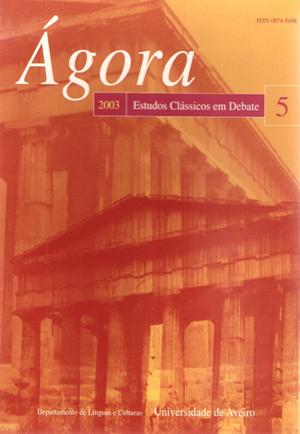Sumque argumenti conditor ipse mei (Tr. 5.1.10): la escritura como acto fundador de trascendencia en las Tristia de Ovidio
##plugins.pubIds.doi.readerDisplayName##:
https://doi.org/10.34624/agora.v0i5.11497
Mots-clés:
temps, immortalité, poésie, Ovide, exil
Résumé
La rupture temporelle (présent/passé) correspondant aux moments antérieur et postérieur au bannissement du poète, constitue un des thèmes récurrents des recueils ovidiens sur l’exil. Cette disjonction conduit, quant à elle, à l’image opiniâtre (et tout à la fois métaphorique) de la mort du narrateur. Nous examinerons, à partir de l’analyse de ces éléments dans les Tristes d’Ovide, la formulation d’une réflexion méta-poétique sousjacente. Dans cette optique, les oppositions provoquées par l’exil permettent de mettre en relief le motif de l’immortalité, assurée par le texte poétique même, véritable acte fondateur de la transcendance par l’écriture.
##plugins.generic.usageStats.downloads##
##plugins.generic.usageStats.noStats##










